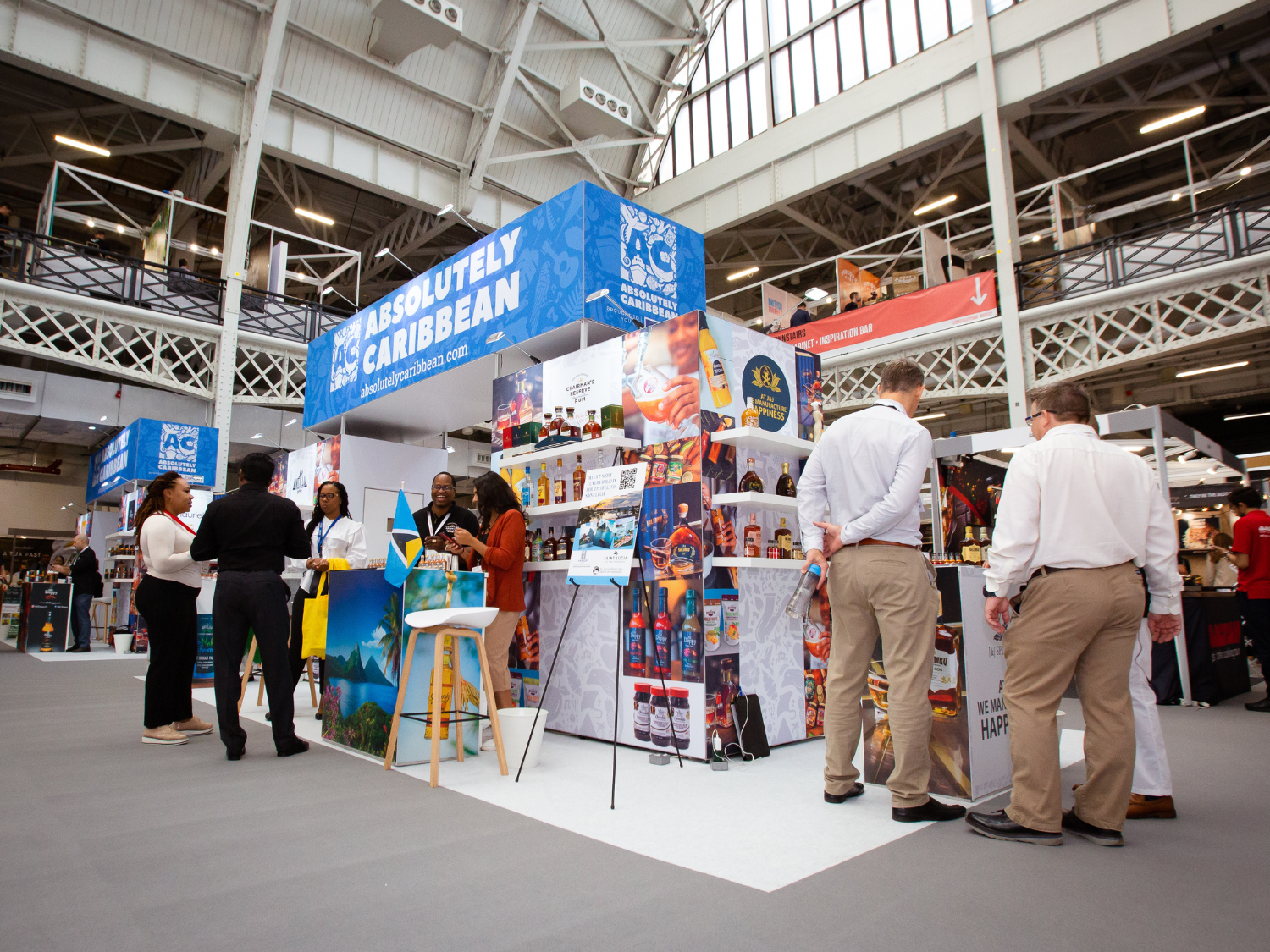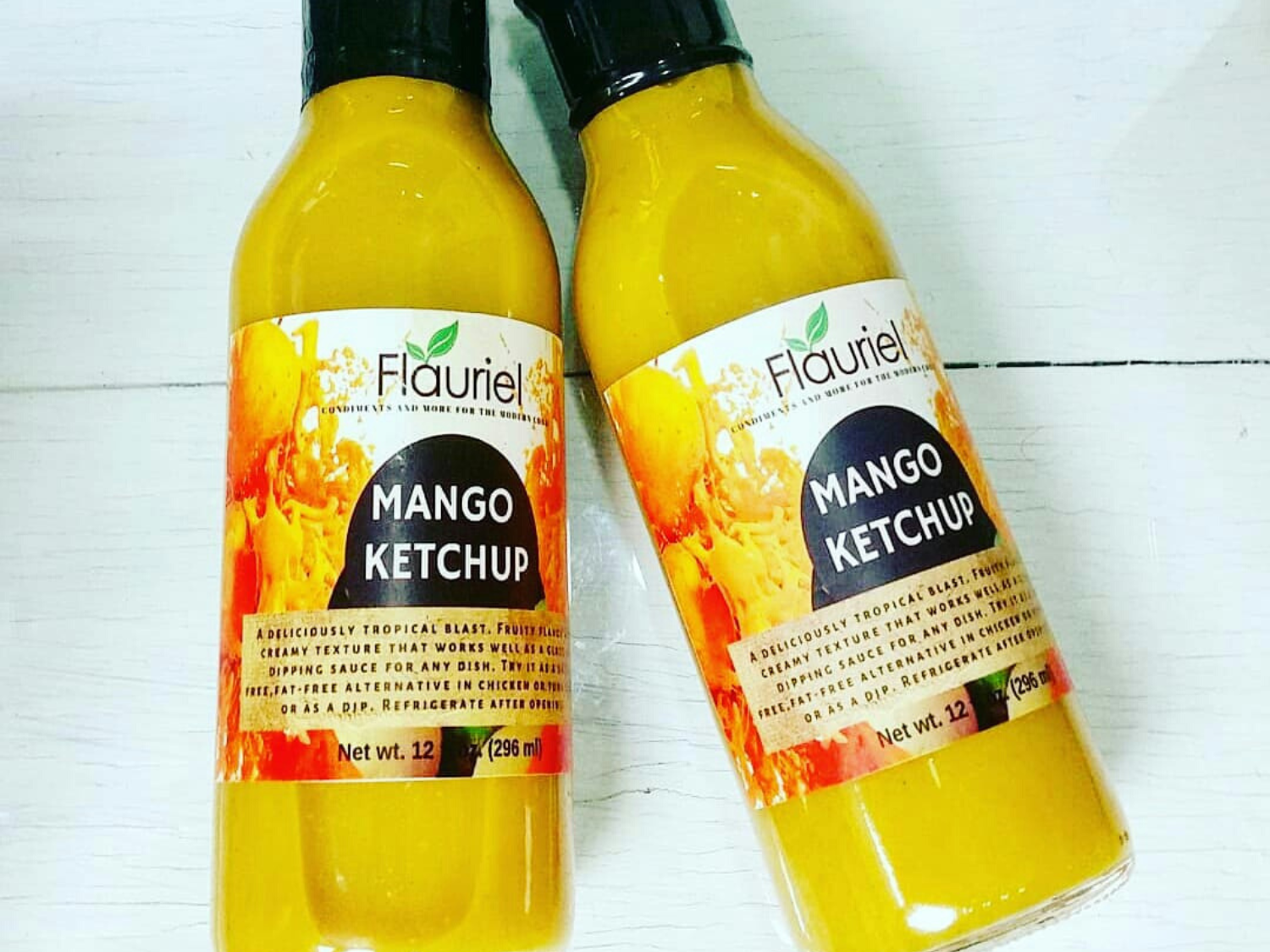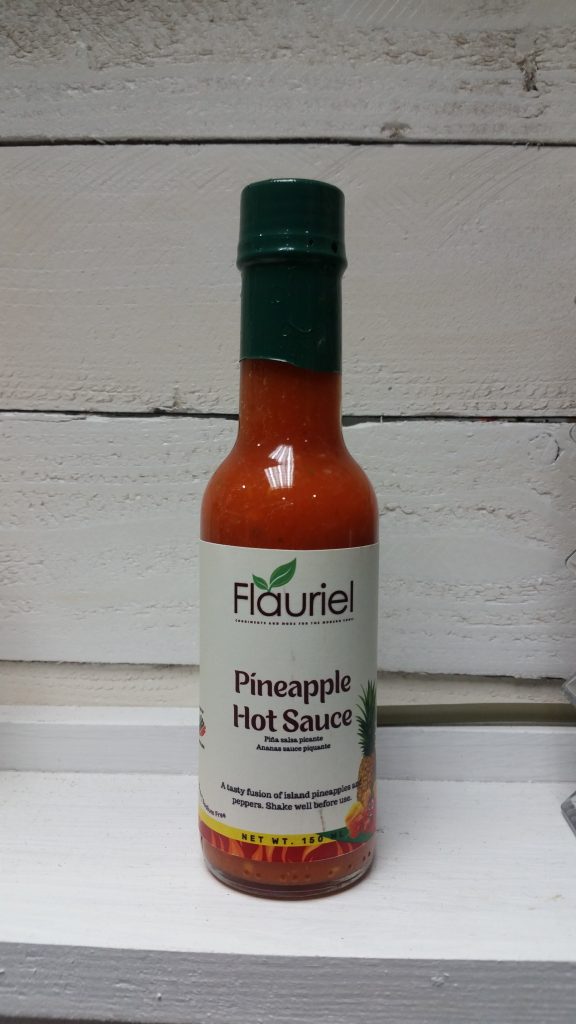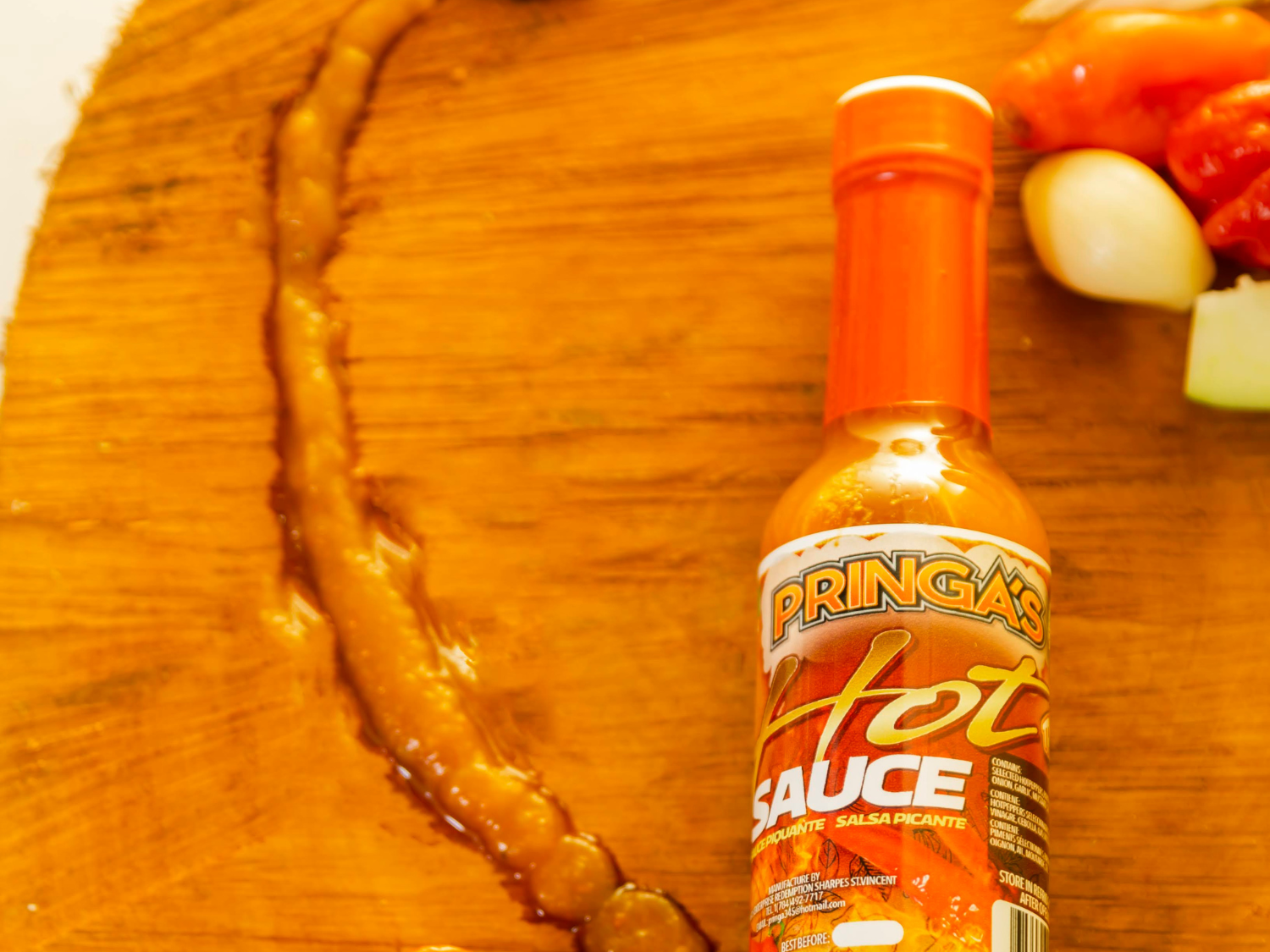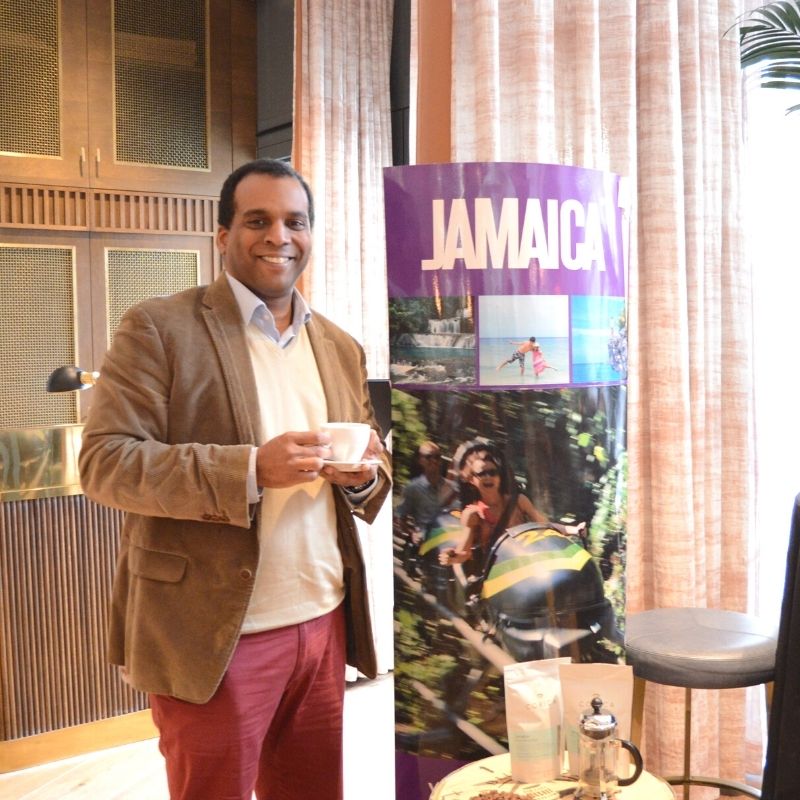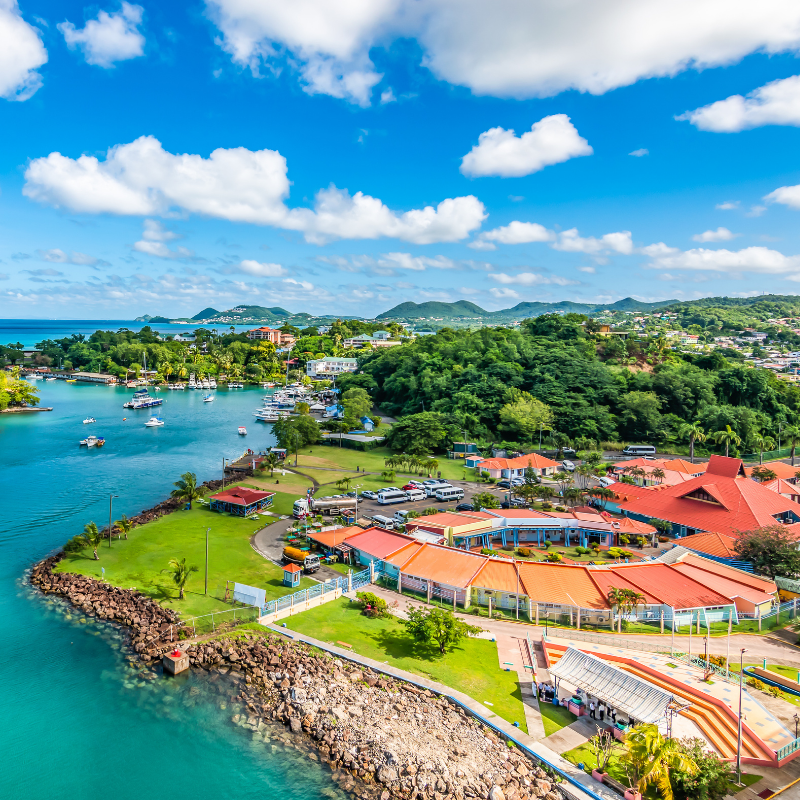Si vous avez déjà siroté un rhum au coucher du soleil, au bar d’une plage ou au bord de la piscine d’un hôtel, vous savez à quel point cette boisson, versée sur de la glace, est bonne et évoque des sentiments de calme, de chaleur et de relaxation.
Né à la Barbade au début des années 1600, cet alcool a joué un rôle essentiel dans l’histoire et la culture de toute la région des Caraïbes. Mais même les esclaves africains qui l’ont découvert en faisant fermenter de la mélasse de canne à sucre n’auraient jamais pu imaginer que la boisson qu’ils appelaient « kill-devil » (et qui fut ensuite appelée « rumbullion » ou « rumbustion ») serait un jour appréciée dans le monde entier.
En fait, le marché mondial du rhum était évalué à 11,26 milliards de dollars en 2021 et devrait se développer à un taux de croissance annuel composé (TCAC) de 5,2 % de 2022 à 2028, principalement alimenté par l’introduction de nouveaux arômes et la popularité croissante des produits haut de gamme.
Les consommateurs qui recherchent une expérience unique et authentique en matière de rhum seront naturellement attirés par la terre ancestrale des Caraïbes, où les producteurs sont restés fidèles à la tradition et à l’héritage, tout en s’efforçant d’adapter la boisson pour que son attrait continue de séduire les nouvelles générations.
Au SIAL Paris 2022, trois distillateurs des Caraïbes présenteront leur gamme de rhums traditionnels et non traditionnels.
Les sociétés St Lucia Distillers Group of Companies, Chicharum SRL et J&J Spirits, SRL participent à la plus grande foire alimentaire du monde, du 15 au 19 octobre, avec l’aide de la Caribbean Export Development Agency et de l’Union européenne.
Le SIAL Paris donne à ces marques de rhum la possibilité de rencontrer 310 000 détaillants, acheteurs et importateurs du monde entier qui recherchent des produits exceptionnels capables de capter et d’exciter l’imagination de leurs clients.
Le groupe de sociétés St Lucia Distillers (groupe SLD) a plus de 50 ans d’expérience dans le domaine du rhum et a été initialement géré par la famille Barnard, qui est distillatrice de rhum depuis près d’un siècle.
Située dans la ville de Roseau, riche en agriculture, cette distillerie de rhum artisanale utilise des alambics en cuivre pour produire plus de 25 rhums et produits à base de rhum de qualité, des rhums et liqueurs haut de gamme aux rhums à verser traditionnels.
Selon son site web, le groupe SLD « n’a pas peur de prendre des risques et est toujours innovant », ce qui lui a valu de remporter plusieurs prix, dont la prestigieuse médaille d’or à l’International Wine and Spirits Competition en 2012 pour son rhum premium phare Admiral Rodney.
Le groupe SLD se concentre également sur la responsabilité des entreprises et la durabilité environnementale. L’eau de pluie est récupérée et traitée pour être utilisée dans le mélange des rhums, des turbines à vapeur font fonctionner le distillateur, la chaudière fonctionne principalement avec de l’huile usagée récupérée, et le rejet des effluents de la distillerie est conforme aux normes européennes. Le groupe a également accordé des bourses d’études secondaires aux enfants de la communauté locale et au moins 30 % de ses travailleurs sont des Saint-Luciens.
Chicharon The World’s Cinnamon Rum » est produit en République dominicaine par Chicharum SRL et s’adresse spécifiquement aux millennials qui sont attirés par les rhums épicés ou aromatisés, notamment pour les mélanges de cocktails.
Fabriqué à la main à partir de rhum vieux, de cannelle et d’extraits de piment vert, « Chicharon The World’s Cinnamon Rum » est un produit original et novateur, au goût épicé et aromatique, qui élève le rhum à un autre niveau. Tous les ingrédients sont naturels et d’origine locale.
Le marketing de Chicharon s’inspire de l’héritage espagnol de la société et fait référence aux couennes de porc ou « Chicharrón », un aliment frit populaire reconnu par la communauté latine dans le monde entier, ainsi qu’au mot espagnol pour rhum – ron.
J&J Spirits, SRL est une entreprise familiale pionnière basée à Santo Domingo en République dominicaine.
Cette entreprise fabrique une gamme de produits exotiques à base de rhum, dont son produit phare, le « Kalembú Mamajuana », prêt à boire. Cette boisson traditionnelle, fabriquée à l’origine par les Indiens Taino qui l’utilisaient comme une puissante plante médicinale, est largement consommée en République dominicaine.
Mélange de rhum brun, de vin rouge, de miel, d’écorce d’arbre, de racines et de plantes médicinales, le Mamajuana est censé faciliter la digestion, la circulation et de nombreuses autres affections.
J&J Spirits a été l’une des premières entreprises à produire commercialement de la Mamajuana et en fabrique actuellement trois variétés : le Kalembú original, le rhum Kalembú Café aux grains de café et le rhum Kalembú Guavaberry.
La version de J&J du Mamajuana a été adoptée par le marché mondial des boissons et est actuellement distribuée aux États-Unis, dans diverses îles des Caraïbes, au Chili, au Pérou, en Allemagne et en Chine.
Bien que le rhum soit synonyme des Caraïbes, la région compte également quelques producteurs de vin primés, dont V’Toria Rhonda Vineyard & Winery, basé à Trinidad, qui expose également au SIAL Paris 2022.
Lancée en 2012 par la vigneronne Nekeisha Charles, cette marque élabore des vins innovants et de qualité supérieure à partir de fruits exotiques et tropicaux mélangés à des cépages.
V’Toria Rhonda Vineyard & Winery propose actuellement six vins non millésimés élaborés à partir d’ingrédients locaux : Love Affair à l’oseille et au Concord, True Passion au fruit de la passion et au Sauvignon Blanc, Just Perception à la grenade et au Zinfandel, Pure Diamond au riz et au Riesling, Remember Me à l’orange et au Muscat, et Discover au pamplemousse et au Merlot.
En janvier 2020, l’établissement vinicole a créé un vignoble de fruits de la passion, le premier du genre dans les Caraïbes, et Mme Charles s’est également diversifiée en fabriquant de la gelée de vin et prévoit d’ajouter des barres de vin au chocolat à sa liste de produits.
Mme Charles a nommé sa marque en l’honneur de sa grand-mère, Victoria Richardson Harper, et ses initiales manuscrites, extraites d’une vieille lettre qu’elle a signée « VR », sont fièrement imprimées sur l’étiquette de chaque bouteille, leur offrant ainsi son sceau d’approbation personnel !
